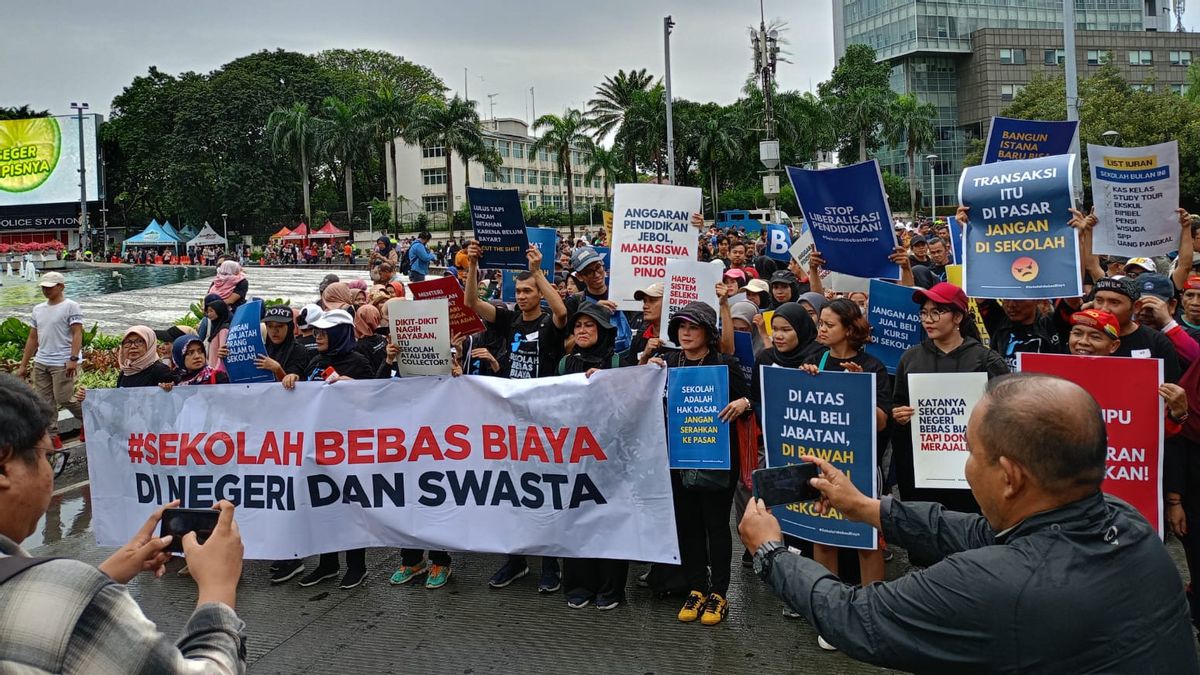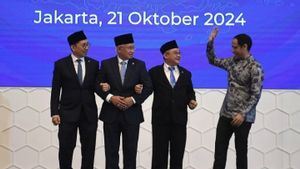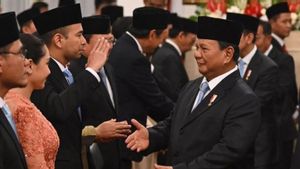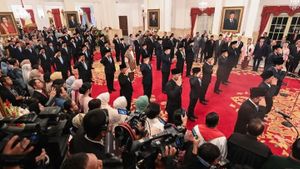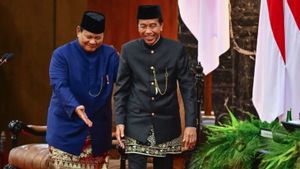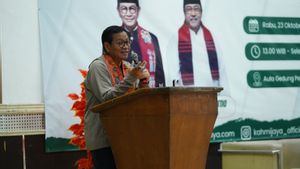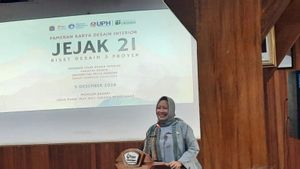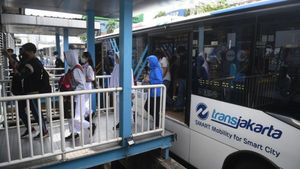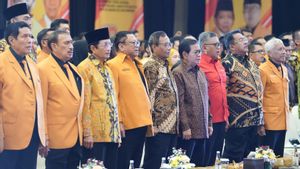JAKARTA The continuation of the Independent Curriculum, New Student Admission (PPDB) with a zoning system, as well as national exams (UN) immediately became the spotlight as soon as Nadiem Makarim spent his term as Minister of Education, Culture, Research and Technology (Kemendibud Ristek). However, according to education observers, the most important thing is to advance the quality of teachers, instead of fussing over the curriculum.
The Minister of Elementary and Secondary Education (Mendikdasmen) Abdul Mu'ti alluded to the Independent Curriculum which had been a polemic. He conveyed this in a handover speech with the Minister of Education and Culture, Research and Technology for the 2019-2024 period, Nadiem Makarim. Apart from the Independent Curriculum, Abdul Mu'ti also mentioned that the PPDB system with zoning channels and the absence of UN will be reviewed.
"So, regarding national exams, zoning PPDB, the Independent Curriculum Learning, especially yes, which is still being debated, we will see everything very carefully and we will be very careful," said Abdul Mu'ti, quoted by Antara.
Meanwhile, on the same occasion, Nadiem Makarim hopes that policies during his good leadership and positive impacts can be continued by the next minister, including Merdeka Learning.
We will convey this memorandum to the next ministers as a learning material in strengthening the journey of Merdeka Learning in the future. We really hope that the policies that have gone well and have a positive impact can still be continued in the next government," said Nadiem.
President Prabowo Subianto and Vice President Gibran Rakabuming Raka have announced the names of ministers who will lead 48 ministries in the Red and White Cabinet (KMP). From the announcement, it is known that several ministries were divided into new ministries so that the number became more.
Of the 48 ministries, 21 of them were the result of the breakup of nine ministries in the previous period. One of the ministries that was broken down was the Ministry of Education and Culture, which was widened to three nomenclatures, namely the Ministry of Basic and Secondary Education led by Abdul Mu'ti, Ministry of Higher Education, Science and Technology with Minister Satryo Soemantri Brodjonegoro, and the Ministry of Culture with Minister Fadli Zon.
The KMP led by Prabowo-Gibran received the spotlight from the start, because it was considered too fat. With a total of 48 ministers, this is the largest cabinet in size since the New Order. A number of analysts call the fat KMP because Prabowo accommodates his supporters in the 2024 Presidential Election (Pilpres).
Executive Director of Political Communication Studies and Research Center (PolCom SRC) Andriadi Achmad agreed with the opinion of many people that Prabowo Gibran's fat cabinet was to accommodate all interests. But on the other hand, he considers this cabinet also prioritizes performance to be more focused and optimal.
Because the country is as big and complex as Indonesia must be taken care of by many individuals. So there is a breakdown of the ministry and the addition of the Coordinating Ministry as well as the special deputy minister and envoy. Although in terms of financing, it will certainly increase and swell from before," Andriadi told VOI.
"Additional nomenclature of ministries and the Coordinating Ministry to be more focused and optimal in building Indonesia in various sectors of life of the nation and state," he added.
The Ministry of Education has not only experienced a reshuffle this time. During the time of President Abdurrahman Wahid, the Department of Education and Culture was changed to the Ministry of National Education. Then in 2011, in the era of President Susilo Bambang Yudhoyono, the term department was changed to a ministry and in 2012 the fields of education and culture were reunited to become a Ministry and Culture.
SEE ALSO:
In the first period, Joko Widodo served as president, the Ministry of Education and Culture was separated from the Ministry of Research, Technology, and Higher Education. But in 2021, these two ministries will be merged into the Ministry of Education and Culture, Research and Technology under the leadership of Nadiem Makarim.
During the five years leading the Ministry of Education and Culture, Nadiem carried out a number of innovations, including through the Merdeka Learning movement. Several policies that include this program include replacing national exams (UN) with the National Assessment, which assesses the basic literacy skills, numeracy of students, character, and the environment of learning in schools. AN is claimed to be more comprehensive than the measurements of the Program for International Student Assessment (PISA). In addition, Nadiem is also still continuing the PPDB zoning system which was first implemented in 2017.
However, Nadiem Makarim's breakthrough in the field of education often reaps polemics. Starting from the Independent Curriculum, to the PPDB zoning system, which many people complain about every year.
No wonder then the call for several policies at the Ministry of Education and Culture to be reviewed in the Abdul Mu'ti era. Starting from the pressure to replace the Merdeka Curriculum, removing the PPDB zoning system, to returning the National Examination (UN) as a condition for graduation and acceptance at the next level.
The pressure was widely echoed shortly after Abdul Mu'ti was sworn in earlier this week. According to the Coordinator of the Indonesian Education Monitoring Network Ubaid Matraji, Minister Abdul Mu'ti did need to review a number of policies, but the results of the study had to go forward, not even a setback.
He gave an example, PPDB zoning system is a progress compared to returning UN as a condition for passing and entering the next level.
With UN, only children who excel are the priority, while the bad value is the impression first (to be able to go to school). Even though PPDB with a zoning system is a progress, "said Ubaid during a conversation with VOI.
"With a zoning system, it means that all children can go to school, whether the results are good or bad. It's just that the problem is that the seats provided are always lacking. So this is something that must be addressed," he added.
For this reason, Ubaid hopes that the government will provide seats in accordance with the number of PPDB students. Do not let students have stories about students who are not accepted by PPDB public schools are forced to go to the private sector at high costs. Not infrequently this condition forces many children to drop out of school due to economic problems. In fact, Ubaid added, the cost of education is clearly the responsibility of the government as stated in the 1945 Constitution.
Regarding the Merdeka Curriculum which also causes pros and cons, according to Ubaid, what needs to be addressed is actually the quality of the teacher itself. By improving the quality of the teachers, it will produce quality students as well.
"Whatever the curriculum, if the quality of the teacher is bad, the results are bad. So don't just fuss about the curriculum. It's been 20 years, changing the curriculum, but there's no impact on the field because the teacher is not qualified," he said.
The English, Chinese, Japanese, Arabic, and French versions are automatically generated by the AI. So there may still be inaccuracies in translating, please always see Indonesian as our main language. (system supported by DigitalSiber.id)
